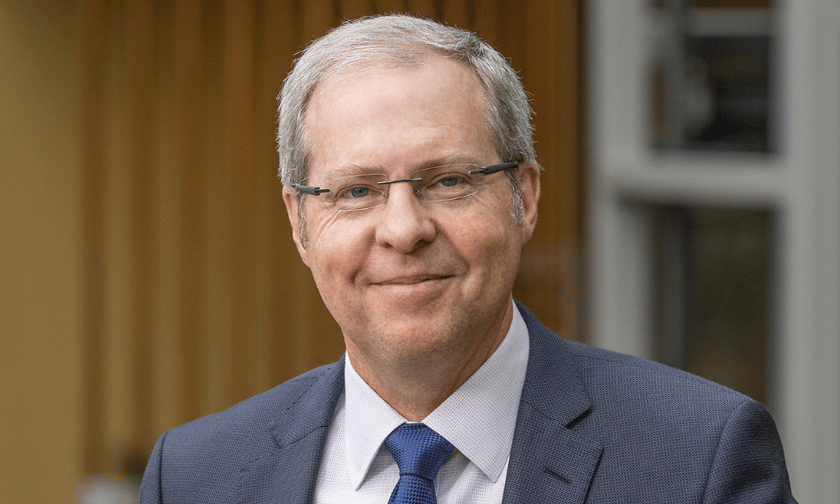

By
Among Australians, homeowners with a mortgage are both spending more and have a more positive outlook on their finances.
That's according to two new, separate consumer reports released this week — one measuring actual spending by Commonwealth Bank, and the other measuring consumer sentiment by Westpac.
According to Commonwealth's CommBank Household Spending Insights (HSI) Index, which reveals actual consumer spending each month, year-over-year, shoppers in Australia spent 1.8% less in December. But a bright spot was homeowners with a mortgage. Among the group, spending rose to 3.8% in December, year-over-year. Comparatively, consumer spending among outright homeowners rose 2.8%, while renters had the lowest increase at 2.4%.
"It's definitely unusual. History suggests that people without a mortgage are spending at a faster rate," Stephen Halmarick, chief economist and head of global economic and market research at Commonwealth Bank of Australia, told Australian Broker.
Halmarick (pictured above) the increased spending to what mortgage holders are buying. Out of 12 spending categories in the index, mortgage holders had double-digit spending increases on four categories: insurance, recreation, household goods and food & beverage. Seven other categories also had increases. The only category where spending decreased for mortgage holders was on transportation. Meanwhile, outright owners saw declines in four categories, while renters spent less in three key areas.
"It's a combination of two things: essential spending is just costing more and it's an age group thing," Halmarick said. "People with a mortgage are spending more on insurance; that counts as essential, and the costs are going up. People with a mortgage are more likely to be in the 35- to 55-year-old age group. Maybe they've got kids, and in the month of December, people in that age cohort probably have kids in school, [and are] going on holidays when they can. Whereas if you're a bit older and don't have kids at school, you're probably choosing not to go on holidays right now.
"We're not asking people how they feel or what they're going to do," he said. "This is actual spending data through the Commonwealth Bank network. This is actual dollars being spent in December."
Still, the Westpac–Melbourne Institute Consumer Sentiment Index, which does measure consumers' feelings towards the economy and their finances, also had similar findings. Overall, consumer sentiment declined 0.7% to 92.1 in January, from 92.8 in December. But similar to CommBank's Index, Westpac found that homeowners with a mortgage were among the most optimistic consumers.
Mortgage holders saw a 15% increase on their financial outlook, compared with a year ago, whereas renters and outright homeowners continued to have a glum forecast.
The Westpac report, which was conducted Jan. 6 to 9 and was written by Westpac Group chief economist Luci Ellis, credited last year's tax cuts, as well as confidence in near-term rate cuts from the RBA as the drivers.
"Mortgagors are less likely to be retired than the other two groups and thus more likely to have benefited from last year’s tax cuts," Ellis wrote.
"Within the overall view on interest rates in January, homeowners with a mortgage were more likely to expect a rate cut than either renters or outright owners,” she wrote. “While the share of mortgagors expecting a cut has exceeded that of renters for more than a year, the increase this month has put them ahead of outright owners as well."
Broker assessments, however, vary.
Kevin Wheatley (pictured below, left), founder and corporate adviser at Sydney-based Bayside Residential and Commercial Mortgages, said the reports were misleading.
"There's not enough sustainable evidence to support them," said Wheatley, regarding consumers' willingness to spend. The rising insolvencies and liquidation levels, alongside higher-for-longer interest rates, have caused people to rethink their budgets, he said.

"Australia is in a very, very poor economic condition," Wheatley said. "Everyone is screaming for rate cuts. The high interest rates have caused non-serviceability. People can't get mortgages; they're struggling to survive because of the cost of living."
Among those who already have a mortgage, Wheatley agreed they're likely spending more, but only because prices of servicing a house have increased.
Meanwhile, Queensland-based mortgage broker Luke Ashby (pictured directly above, right) said he's heard different things among mortgage holders.
"Some people are quite hopeful, and some people aren't that confident because of the RBA and interest rates," he said. "So take it all with a grain of salt."
